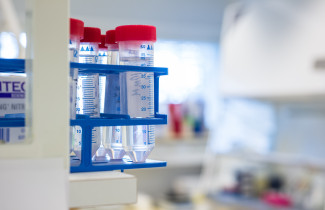The doctoral dissertation in the field of Molecular Medicine will be examined at the Faculty of Health Sciences at Kuopio campus.
What is the topic of your doctoral research? Why is it important to study the topic?
The topic of my doctoral research is ”T-cell signatures during the progression of type 1 diabetes”. Type 1 diabetes (T1D) is a T-cell mediated autoimmune disease that often develops during the childhood. The disease has a particularly high incidence in Finland. Recently, FDA approved the first immunotherapy treatment targeting T cells to delay the onset of T1D, marking a huge milestone for the T1D research field. This makes studying the role of T cells inT1D ever more urgent, since this could reveal novel biomarkers to help target individuals who would most benefit from the immunotherapy for the treatment.
What are the key findings or observations of your doctoral research?
The most central findings in my doctoral research are that there are distinct, but temporal alterations in T-cell signatures during the development of T1D. More specifically, distinct CD8+ and CD4+ T-cell phenotypes were more frequent both in at-risk children and children with newly diagnosed T1D than in the healthy controls. These alterations were detected in the stages of established autoimmunity close to clinical diagnosis, but not during early autoimmunity.
Of particular interest in this thesis are the findings in the CD8+ T-cell compartment. We demonstrated that CD8+ T cells that expressed co-inhibitory receptors were increased in the circulation of children at-risk for T1D. Interestingly, a highly similar CD8+ T-cell phenotype has been associated with beneficial immunotherapy response in the immunotherapy trials by others. Therefore, the CD8+ T-cell phenotypes detected in this doctoral thesis are a timely finding that could be utilised in the development of biomarkers.
How can the results of your doctoral research be utilised in practice?
The findings of the dissertation provide timely insight into the T-cell landscape at different stages of T1D progression. Furthermore, these findings support the idea that T-cell signatures could have a potential to be developed into biomarkers of disease progression in the future.
What are the key research methods and materials used in your doctoral research?
The thesis work was conducted in the Translational Immunology Group led by professor Tuure Kinnunen. The group is focused on studying immune cell landscape in autoimmune diseases, such as T1D and juvenile idiopathic arthritis. We utilise single-cell methodologies including multiparameter flow cytometry and single-cell multiomics approaches. I have been mainly working with the precious pediatric cell and plasma samples obtained through the DIPP study (https://dipp.fi/).
The doctoral dissertation of Anna-Mari Schroderus, Master of Science, entitled T-cell signatures during the progression of type 1 diabetes will be examined at the Faculty of Health Sciences. The Opponent in the public examination will be Docent Eliisa Kekäläinen of the University of Helsinki, and the Custos will be Professor Tuure Kinnunen of the University of Eastern Finland. The public examination will be held in English.
For further information, please contact:
Anna-Mari Schroderus, MSc, [email protected]


